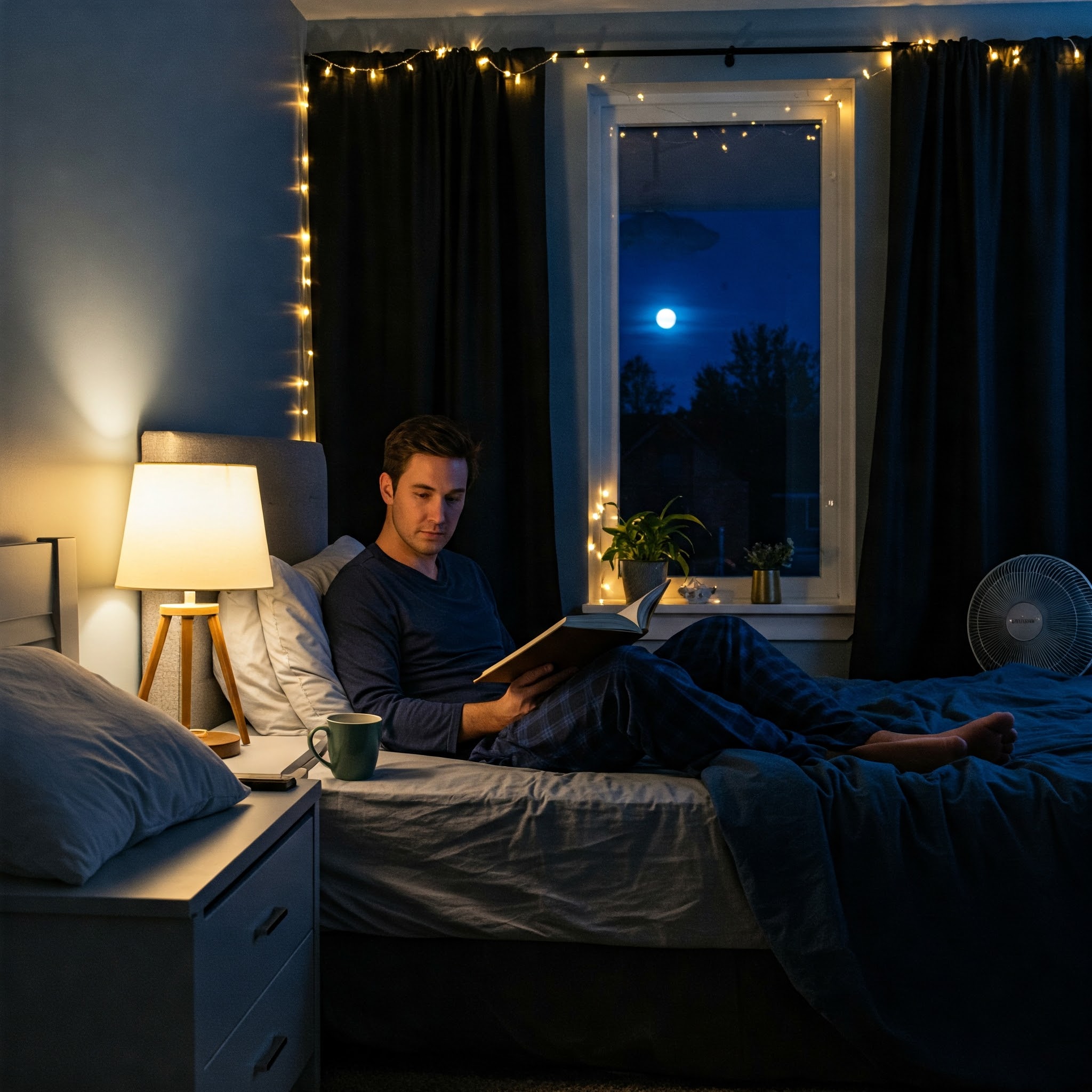10 Simple Bedtime Habits for Better Sleep
In our fast-paced world, a good night's sleep often feels like a luxury. Yet, it's a fundamental pillar of our physical and mental well-being. Skimping on sleep can lead to fatigue, irritability, decreased focus, and even long-term health issues. The good news is that cultivating healthy sleep habits doesn't require drastic changes. By incorporating these 10 simple bedtime practices into your routine, you can pave the way for more restful and rejuvenating nights.
1. The Power of Consistency: Maintain a Regular Sleep Schedul
Our bodies thrive on routine, and our sleep-wake cycle, known as the circadian rhythm, is no exception. Going to bed and waking up around the same time every day, even on weekends, helps to synchronize this internal clock. This consistency makes it easier to fall asleep and wake up feeling refreshed, rather than battling the grogginess that often follows irregular sleep patterns.2. Create Your Evening Sanctuary: Establish a Relaxing Bedtime Routine
Think of your bedtime routine as a signal to your body and mind that it's time to wind down. For 30-60 minutes before hitting the sheets, engage in calming activities that help you transition from the day's stresses. This could involve reading a physical book (avoiding screens!), taking a warm bath or shower, listening to soothing music, or practicing gentle stretching or meditation. Find what relaxes you and make it a consistent part of your evening.3. Optimize Your Sleep Oasis: Craft the Perfect Sleep Environment
Your bedroom should be a haven for sleep. Ensure it's dark, quiet, and cool. Invest in blackout curtains to block out external light, use earplugs or a white noise machine to minimize disruptive sounds, and adjust the thermostat to a comfortable temperature, generally between 60-67 degrees Fahrenheit (15-19 degrees Celsius). A conducive environment significantly enhances sleep quality.4. The Blue Light Ban: Limit Screen Time Before Bed
In our digital age, this can be a challenge, but it's crucial for good sleep. The blue light emitted by smartphones, tablets, and computers suppresses the production of melatonin, the hormone that regulates sleep. Aim to power down all electronic devices at least an hour before bedtime. Consider reading a physical book or engaging in other non-screen activities during this wind-down period.5. Fueling for Rest: Mindful Eating and Drinking Before Sleep
What you consume before bed can significantly impact your sleep. Avoid heavy meals that can lead to indigestion, as well as stimulants like caffeine and nicotine. Alcohol, while it might initially make you feel drowsy, often disrupts sleep later in the night. If you're hungry, opt for a light, sleep-friendly snack such as a banana or a small bowl of yogurt.6. The Benefits of Movement: Embrace Regular Exercise (But Time it Right)
Regular physical activity can improve sleep quality and duration. However, avoid intense workouts too close to bedtime, as they can be stimulating. Aim to incorporate exercise earlier in the day, allowing your body ample time to wind down before sleep.7. The Art of the Short Nap: Limit Daytime Slumbers
While a short nap can be refreshing, long or late-day naps can interfere with your nighttime sleep drive. If you find yourself needing a nap, keep it brief (around 20-30 minutes) and avoid napping too late in the afternoon. This will help ensure you're sufficiently tired when bedtime rolls around.8. Taming the Worry Monster: Manage Stress and Anxieties
Lingering worries and stress can be major sleep disruptors. Before getting into bed, take some time to address your thoughts. You can jot them down in a journal to clear your mind and set them aside for the next day. Practicing relaxation techniques such as deep breathing exercises, progressive muscle relaxation, or mindfulness meditation can also help calm your mind before sleep.9. Your Bed is Your Sanctuary: Reserve it for Sleep and Intimacy
Train your brain to associate your bed with sleep and intimacy only. Avoid using it for activities like working, watching television, or browsing the internet. This helps create a stronger mental connection between your bed and rest, making it easier to fall asleep when you get in.10. Embrace the Day's Light: Get Some Sunlight Exposure
Exposure to natural light, especially in the morning, plays a vital role in regulating your circadian rhythm. Sunlight helps signal to your body that it's daytime, promoting alertness. This, in turn, contributes to a more consistent and healthy sleep-wake cycle, leading to better sleep at night.Prioritizing sleep is an investment in your overall health and well-being. By implementing these 10 simple bedtime habits, you can create a foundation for more restful nights, leading to brighter, more energetic days. Start small, be consistent, and listen to your body's needs. Sweet dreams await!
Have you used any of these techniques? Let us know your experience below.